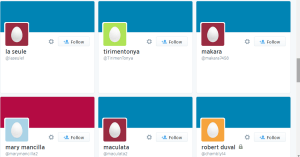 Written by ContentPowered.com
Written by ContentPowered.com
Likes are the bread and butter of Facebook. They’re the most basic form of currency you have as a user, and they’re the most essential thing you can gather as a business. Businesses need likes – specifically users liking their page, rather than their content individually – in order to have an audience. Without those users liking your page, you have nothing.
This has led to a wide array of possible abuses of the system in the past years. You had people buying fake likes from robot accounts to boost their like number. You had people implementing like gates to hide their content from people who don’t like their page. You had gates one step further, requiring both a like and an app install to see.
Facebook has been combating this problem, slowly. They already have a delete on sight policy for robot and fake accounts. They tweaked their EdgeRank algorithm so that fake followers hurt your broadcast range. They blocked like gates from their service recently.
Now they’re testing a tool internally to deliver a qualitative judgment about your fans. Currently, when you visit your users section in Facebook’s Page administration section, you can see individual readouts of:
- People who like the page.
- Pages that like the page.
- Subscribers to the page.
- Page Admins.
- Users banned from the page.
With this new tool, Facebook adds two new groups; Valuable and Irrelevant.
Facebook Fan Quality
What does this mean for your page administration? It means you have access to a quick judgment of quality for your fans.
Note that Facebook would only be dividing your users into three groups, with one group being the majority who are neither exceptionally valuable nor exceptionally worthless. The other two groups would be your most valuable fans – the brand advocates, the people who always comment and like your posts, the people who keep mentioning your brand through tags – and the worthless fans.
The worthless fans are the most important category to recognize, because you want to keep them as limited as possible. These are the people who never see your posts, the people who never like, share or comment on your content; generally the people who don’t interact with your brand.
Where do these worthless fans come from? There are a few sources.
- Robot fans you either purchase or had purchased for you. Bad SEOs often do this to make a Facebook page look more active, even though it hurts more in the long run.
- Fans from countries or locations outside of your sale zone. This happens when clickfarms get involved. The users like your page but never bother to come back.
- Users who like your page for one specific reasons and then are dissatisfied and leave.
- Users who like your page for a contest or a like gate, before they were banned, and who don’t bother to follow your page after the contest period ends.
With Facebook’s tool, you might be able to get a clean readout of these uninterested, valueless fans and remove them from your page. You don’t have to ban them, necessarily; just remove them from the pool.
Beneficial Filtering
Why might you want to remove these fans? If they don’t engage, they don’t see your posts. If they don’t see your posts, why do they matter?
Facebook shows your posts to a pool of users chosen based on their own criteria internally. Each post you make is only visible to a small percentage of your users. Your true visibility, your viral reach, comes from those users liking, sharing, commenting and otherwise engaging with those posts. Each time they do, it exposes your post to their friends, which balloons your available reach.
The problem with fake fans is that they don’t do any of that. Any post shown to those users is a waste of time. If they don’t see your posts at all, it doesn’t precisely hurt you, but each time they see one it’s a detriment.
The best part about this potential tool is how easy it makes finding those fake fans. Previously, identifying fake fans was quite the process.
First you would want to check the profiles of any fans you’re suspicious of. If they have no profile picture or cover photo, or if their picture or cover photo is shared with another user – check with Google’s reverse image search – they’re likely a fake fan.
The removal process is even worse. You can’t create a list and remove fans in bulk; you have to go through each of them individually to remove them. As if that isn’t bad enough, Facebook uses a lightboxed “infinite scroll” readout to show you your fans. If you pass a certain number of fans, you no longer can load that window. Your oldest fans are impossible to find without knowing who they are.
The ideal with Facebook’s quality judgment would be to remove all of those fans in one click, or at least be able to remove everyone in the list indiscriminately.
A Potential Future
For now, Facebook is still testing the feature. They have not yet released it to the public. This is likely just due to how difficult it is to identify fake fans compared to real, disengaged users compared to real engaged users. There’s no easy line in the sand, and spammers do their best to trick Facebook anyhow.
The tool does open up potential future targeting, as well. This is just spitballing, there’s no evidence to support this, but wouldn’t it be neat if you could target a post specifically at your “irrelevant” fans? Sure, you’d catch a lot of fake accounts, but what about the users who would be interested, but who have slipped through the EdgeRank cracks? The users who don’t see your posts, and thus don’t engage, and fall into the downward spiral that keeps them from ever seeing your content? It would be like targeting the users who never open your emails with a specific “why don’t you open our mails” message.
Either way, keep an eye out for this feature in the future. You never know what Facebook will be able to pull off.




